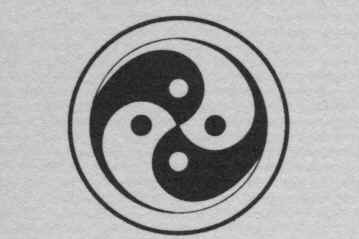The following chart graphically represents physiological imbalances and dysfunctions caused by emotional and mental blocks and rigidites. The autonomic nervous system controls many involuntary functions such as heart rate and others listed below and always attempts to maintain homeostasis. It should have the flexibility to move between opposite polarities easily, but return to a balanced position between them. Many dysfunctions and pathologies are a result of dominance of one polarity resulting from a variety of traumas or childhood adjustments to dysfunctional or fearful family environments. Simply stated the gene switches that control these functions get stuck on an "on or off" position, and lose their ability to return to homeostasis. We now know from the new scientific understanding of Epigenetics, that childhood stress, neglect, and abuse can cause a switching off of certain genes, for example genes controlling dopamine, serotonin and oxytocin (the cuddle hormone) levels and even be passed on to the next generation. These and other epigentic dysfunctions can be corrected therapeutically and switched back on as the brain heals and begins to function normally.
| Effects | Ergotropic or Sympathetic Dominance | Trophotropic or Parasympathetic Dominance |
|---|---|---|
| Autonomic | Augmented sympathetic discharge: increased cardiac rate, blood pressure and sweat secretion; pupillary dilation; posterior hypothalamus. | Augmented parasympathetic discharge: reduction in cardiac rate, blood pressure, sweat secretion; pupillary constriction; increased G. I. motor secretory function; anterior hypothalmus. |
| Somatic | Desynchrony EEG, increased skeletal muscle tone; elevation of certain hormones: adrenaline, noradrenaline, adrenal cortical steroids, thyroxine. | Synchrony of EEG, loss of skeletal muscle tone, blocking of shivering response, increased insulin secretion. |
| Behavioural | Arousal, heightened activity and emotional responsiveness. | Inactivity, drowsiness and sleep |
| Pathological | Essential hypertension; acute depression (sudden shift from E to T dominance; menstrual problems; constipation, heart disease, migraine, premature ejaculation. | Low immunity to common ailments: asthma, sinusitis, colds; duodenal ulcer disease; vasodepressor syncope (fainting) functional hypoglycemia; excessive menstrual flow. |
| Energetic | Hyper, anxiety. | Hypo, chronic depression. |
| Emotional | Anger-out: active rage. | Anger-in: passive fear. |
| Respiratory | Thoracic breathing. | Abdominal breathing. |
| Therapeutic | Discharging. | Charging. |
